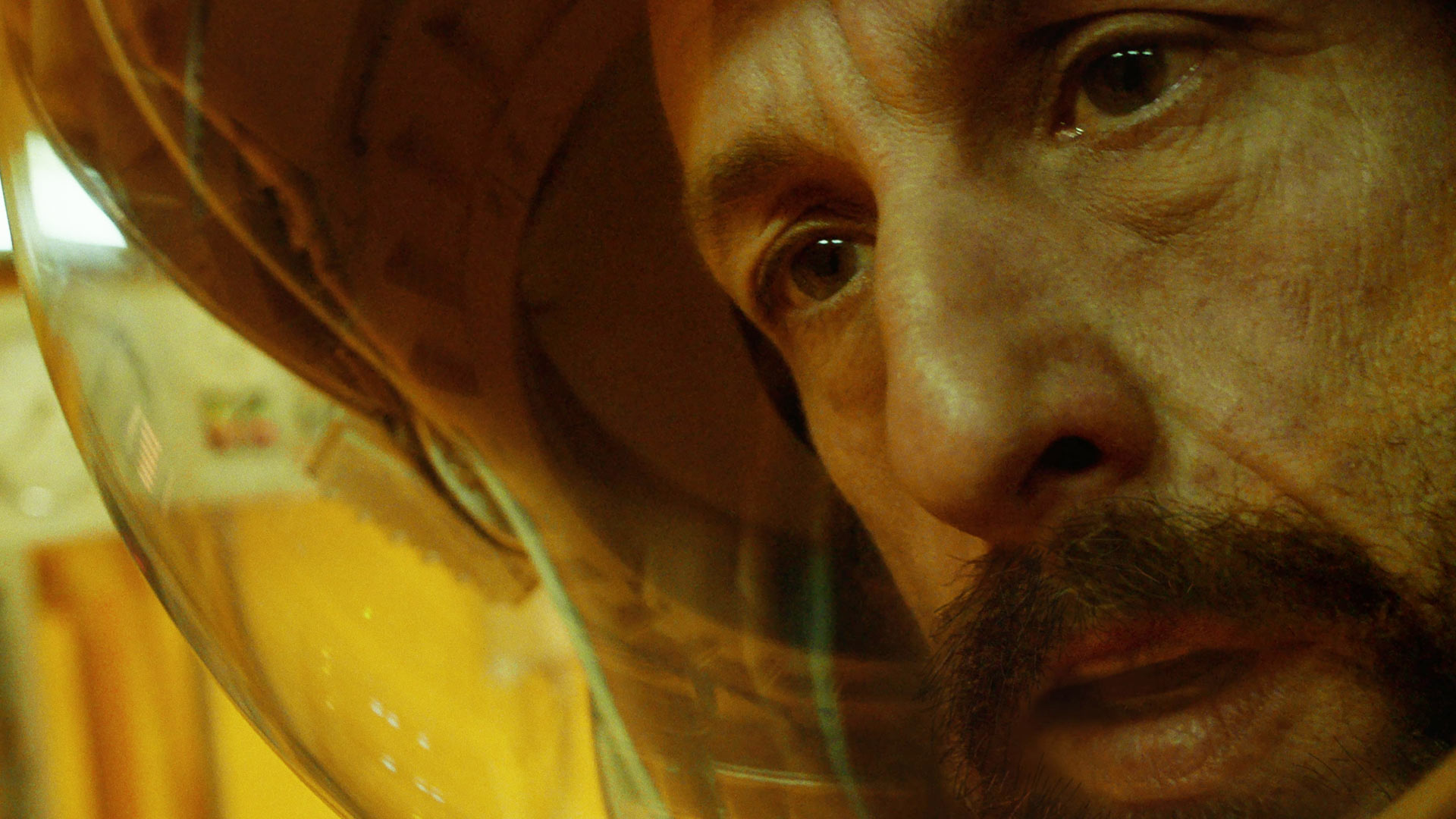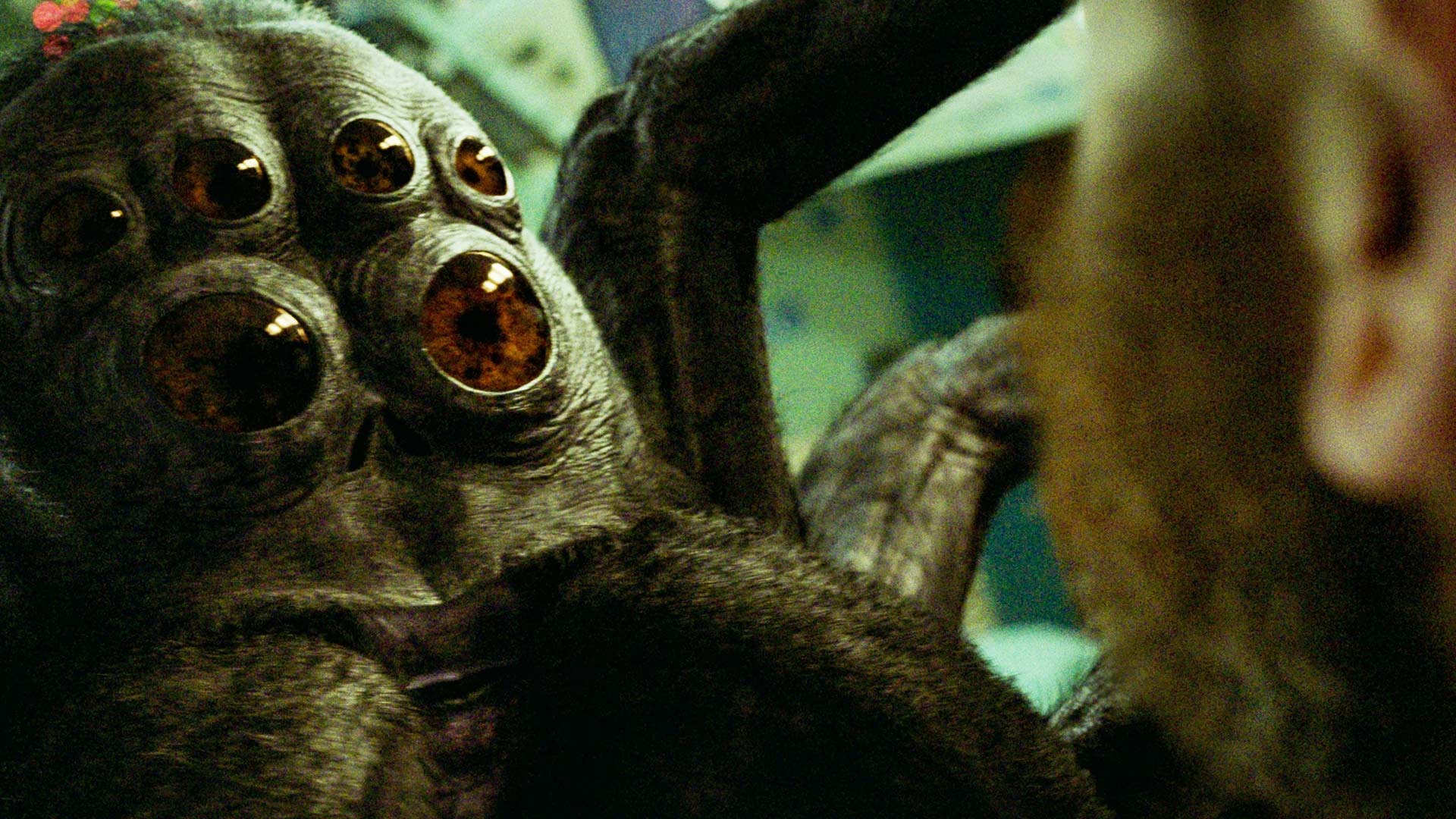Adam Sandler hangs out with a sage spider in the charmingly odd Spaceman
Netflix’s fave comedy star ventures a little deeper, tackling marital problems and galactic loneliness in this new drama.

Without a silly voice or Kevin James in sight, Adam Sandler stars as a lonely astronaut in Johan Renck’s melancholic Spaceman. It’s a genuine and psychologically stirring voyage, writes Luke Buckmaster.
In space nobody can hear you scream—or yelp in surprise when a giant alien spider scurries on board your ship for a chinwag. In Spaceman, Adam Sandler’s hangdog-looking astronaut Jakub is desolate and sleep-deprived, hundreds of millions of miles from his pregnant wife, Carey Mulligan’s Lenka. There’s a sense of growing disconnect between them—more a matter of emotional than physical distance. Director Johan Renck, best-known for helming Chernobyl, emphasises the loneliness of space, like so many other films—but spectacularly detours from the pack when the aforementioned arachnid arrives to share sage insights about the nature of life as well as other, less lofty subjects, such as the pleasures of hazelnut spread.
“The universe is as it should be,” the spider (voiced by Paul Dano) whom Jakub names Hanus says, suggesting a rather zen, well-balanced outlook. This furry spindly-legged fellow is no pushover, however, and he’s not averse to a wee bit of lecturing, admonishing Jakub by noting that his child will soon enter the world and “you are not there.” The obvious question, given the protagonist’s already rattled mind frame—a point emphasised through a nightmare sequence involving an insect rummaging around under his skin—is whether the spider is real or Jakub is non compos mentis.
That question however isn’t the point, or much of the focus, of this modestly charming and quirky slice of cosmos contemplation that uses the infinite possibilities of the universe to free up some aspects of the drama, allowing the integration of things—mainly the spider—that might seem ridiculous otherwise. And we buy it, or at least I did: to me the cross-species relationship at the heart of the film felt totally genuine, once the initial wackiness wears off and the experience finds its gentle introspective rhythms. Renck reminds us that realism comes in various forms; it can be emotional as much as logic or plausibility based.
For a film about a dude floating around in space while gasbagging with a giant spider, in other words, Spaceman sure feels grounded and real. At the same time Renck pulls off a kind of swirling, floating psychological energy, or anti-gravity emotionalism, some feelings coming and going as they bob around Jakub’s brain—but the deep ones, rooted in his psyche, remaining ever-present, unescapable no matter how many millions of miles are traveled. Lenka (played poignantly by Mulligan) is crucial to this, despite her and Jakub’s locational disconnect. As is the question of whether it’s right for Jakub to leave her and their unborn child at this moment in their lives.

The script, adapted by Colby Day, carefully avoids suggesting the importance of the mission—involving the collection of ancient dust—outweighs a moral responsibility the protagonist has to his loved ones. Early in the film, Lenka records a video in which she breaks up with Jakub, his handlers at ground control understandably wanting to keep this from him. If it initially seems a little harsh to split from your partner while they’re floating in a tin can in outer space, undertaking a potentially significant mission for humankind, we come to see things from her perspective and it’s the protagonist’s attitudes, rather than her’s, that require readjustment.
Some of the film’s ideas, presumably cribbed from the source material—Jaroslav Kalfař’s novel Spaceman of Bohemia—are a little familiar. Space as the alpha and omega, folding together the sheets of the universe, unifying past and present, enabling cosmic clarity during long dark voyages of the soul—like in Ad Astra, Interstellar, 2001: A Space Odyssey and many others. But the execution, devoid of levity and self-consciousness, feels pretty fresh and you never doubt Spaceman‘s commitment to the psychology of its characters—even the non-human one.























